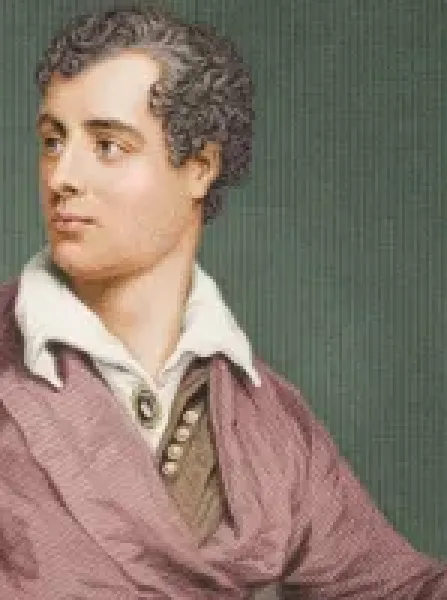George Gordon Byron, known as Lord Byron, was born on January 22, 1788, in London, into an aristocratic family scarred by scandal and economic hardship. After a childhood spent between England and Scotland, he studied at Cambridge, where he developed his rebellious spirit and taste for poetry. He became famous in 1812 with the publication of Childe Harold's Pilgrimage, a poem inspired by his travels in Europe, which earned him immediate fame and established him among the great Romantic poets.
However, his private life was marked by scandals and tumultuous relationships, which made him a controversial figure in English society. In 1816, after the failure of his marriage to Annabella Milbanke and rumors of an incestuous affair with his half-sister Augusta Leigh, Byron left England for good, beginning a long exile that would take him to Switzerland, Italy and Greece.
When he arrived in Italy in 1816, he lived first in Venice, a city that fascinated him with its decadent beauty and amorous intrigues. Here he came into contact with some of the most important Italian intellectuals and immersed himself in the culture of the time, deepening his knowledge of the Italian language and literature.
In 1817, he came to the Euganean Hills, where he stayed in Este and was impressed by the history and nature of the area. He could not help but dedicate some of his verses to Arquà Petrarca, the village where the great poet Francesco Petrarca had lived his last years.
In 1821, he settled in Genoa, where he wrote some of his most famous works, including the drama Cain and the unfinished poem Don Juan.
But Byron's restless spirit could not stay in one place for long. In 1823, animated by ideals of freedom and justice, he decided to leave for Greece, where he joined the struggle for independence from Ottoman rule. Here, in Missolonghi, he fell seriously ill and died on April 19, 1824, at the age of only 36.
Although he spent only a short time in the Euganean Hills, Italy played a crucial role in his life and work. His love for Italian culture and history shines through in many of his poems, and his figure remains linked to the romantic myth of the rebellious and visionary artist, capable of leaving an indelible mark on literature and history.
George Gordon Byron in the Literary Park

